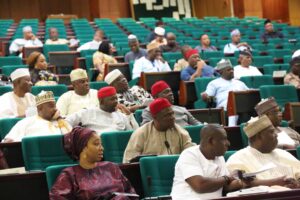Togo’s National Assembly has passed sweeping constitutional reforms, altering the way the country elects its president and imposing term limits. The changes have sparked significant controversy, with opposition groups and civil society accusing the government of consolidating power and undermining democratic principles.
Constitutional Changes and Their Impact
Lawmakers gave final approval to the constitutional amendments late on Friday, just ahead of the upcoming legislative elections on April 29. These reforms, which have faced backlash from opposition parties, were initially adopted by parliament on March 25 but were subject to further consultations after President Faure Gnassingbé called for a second vote.
The approved amendments introduce several key changes:
- The president will now be elected by members of parliament, rather than by universal suffrage.
- Presidential terms have been shortened from five to four years.
- A two-term limit has been introduced for the presidency.
- A new role, president of the council of ministers, has been created with extensive authority over government affairs.
Notably, the reforms do not account for the time already served in office, meaning President Gnassingbé, who has been in power since 2005, could potentially remain in office until 2033 if re-elected in 2025. His political party, the Union for the Republic (UNIR), currently controls the National Assembly, making this scenario highly plausible.
Opposition Condemns the Reforms
These constitutional changes have ignited strong criticism from opposition groups and civil society organizations, who view them as an attempt by Gnassingbé to further entrench his family’s decades-long grip on power. The Gnassingbé family has ruled Togo since 1967 when the president’s father, Gnassingbé Eyadéma, seized power in a coup.
A coalition of 17 civil society organizations issued a joint statement condemning the reforms, calling them a “project to confiscate power” by a regime resistant to democratic change. The opposition coalition, Dynamique Pour la Majorité du Peuple (DMP), also expressed outrage, describing the amendments as a political maneuver designed to secure President Gnassingbé’s hold on power indefinitely.
Political Reactions and Regional Implications
Koumealo Anaté, a lawmaker from the ruling UNIR party, defended the reforms, claiming that they represent a step toward “a more inclusive and participatory democracy.” He praised the outcome as a source of pride for the nation. However, critics argue that the new system allows for unchecked power and lacks sufficient democratic safeguards.
Nathaniel Olympio, leader of the opposition party Parti des Togolais, voiced his concern before the vote, warning that the reforms would grant the president excessive power and facilitate further extensions of his rule. He pointed to the creation of the president of the council of ministers’ position as a particular area of concern, believing it could allow the president to exercise control indefinitely.
A Broader Trend Across Africa
Togo’s constitutional changes reflect a broader pattern seen across several African nations, where legal and constitutional amendments have been used to extend presidential terms. Countries like Rwanda, the Central African Republic, and Guinea have adopted similar measures, allowing leaders to remain in power for extended periods.
In recent years, West and Central Africa have also experienced a wave of military coups, with eight occurring over the past three years. These developments, coupled with crackdowns on political demonstrations under President Gnassingbé, have raised concerns about the erosion of democratic governance in the region.
Future Uncertainty
The new constitution’s provisions mark a significant shift in Togo’s political landscape. As the April 29 elections approach, the opposition continues to express fears that these changes will further entrench the Gnassingbé family’s rule, limiting opportunities for genuine democratic change. The long-term impact of these reforms remains to be seen, but they have undoubtedly set the stage for a new chapter in Togo’s political journey.


